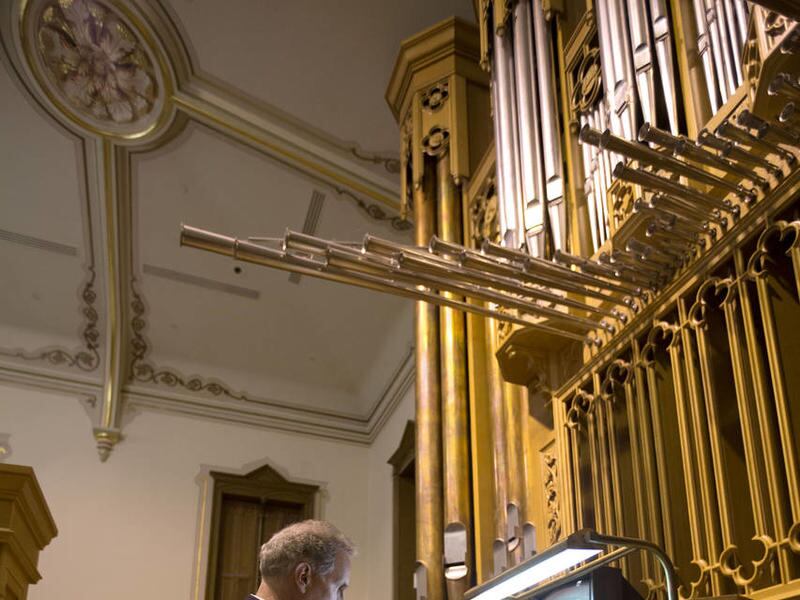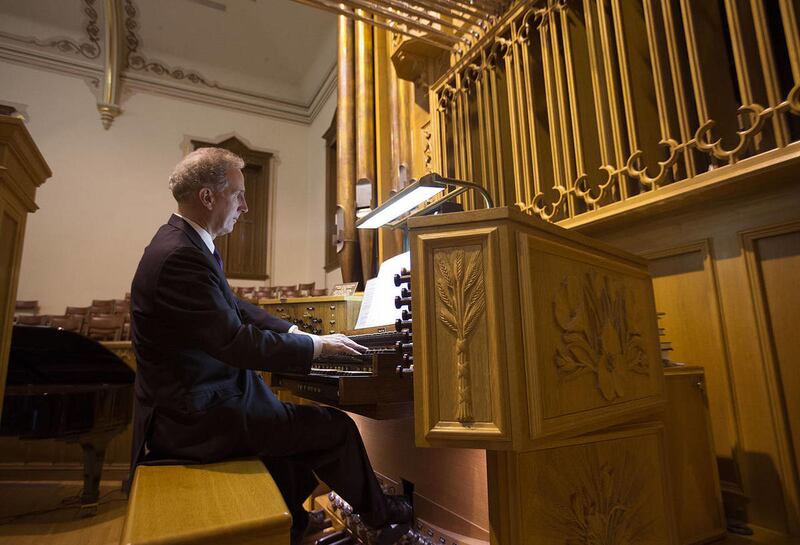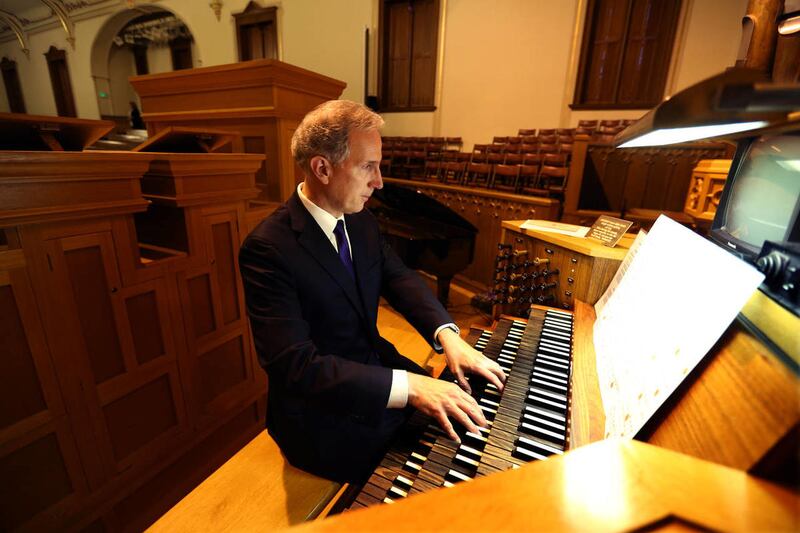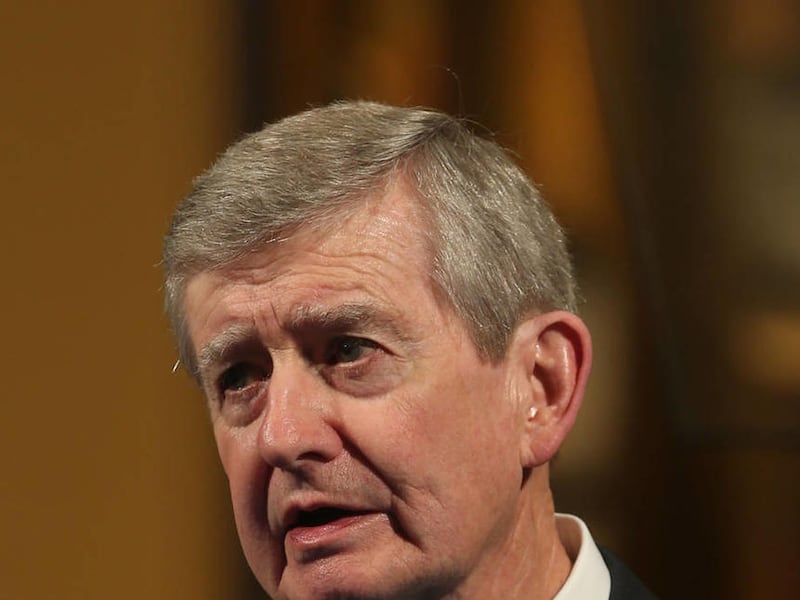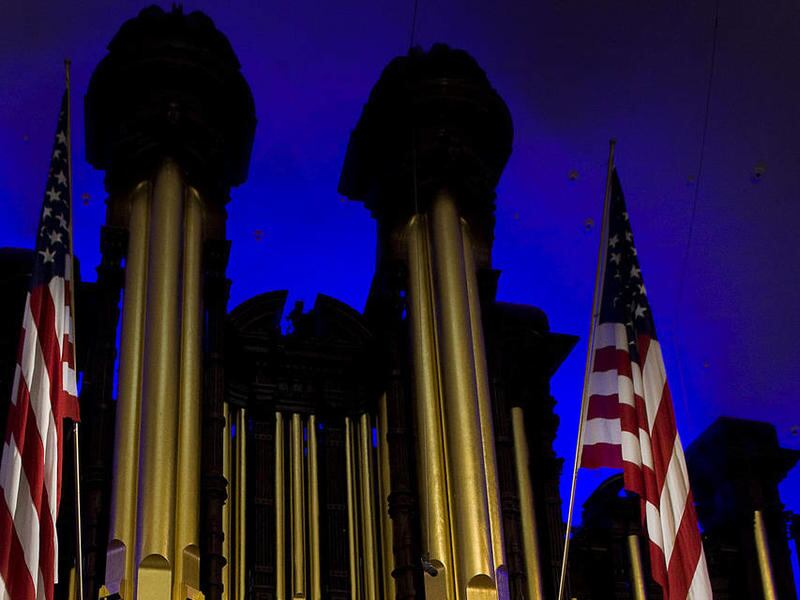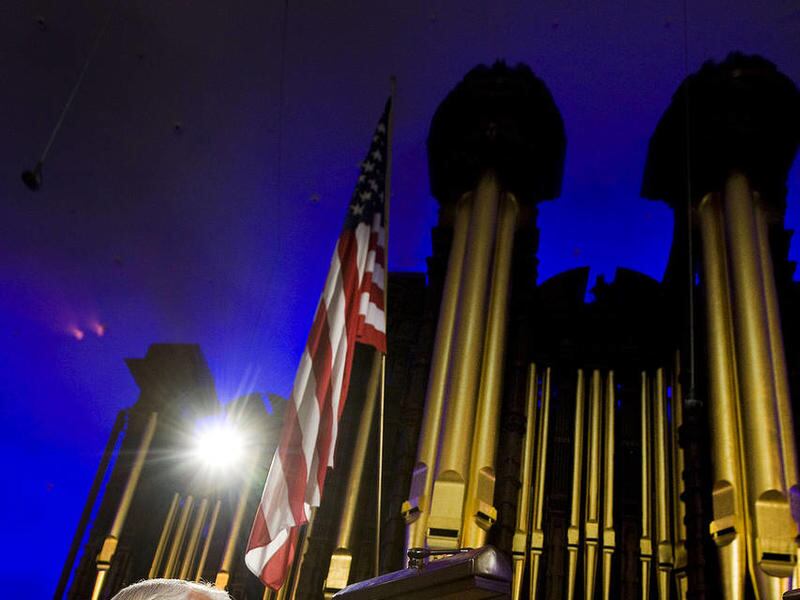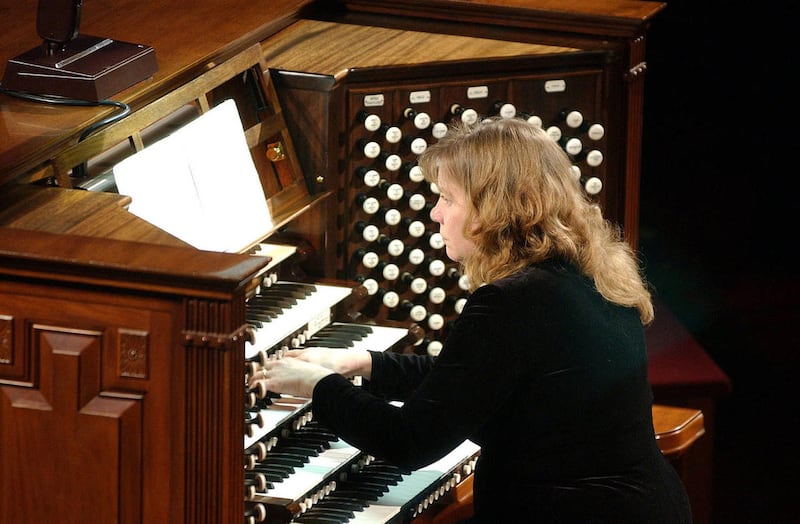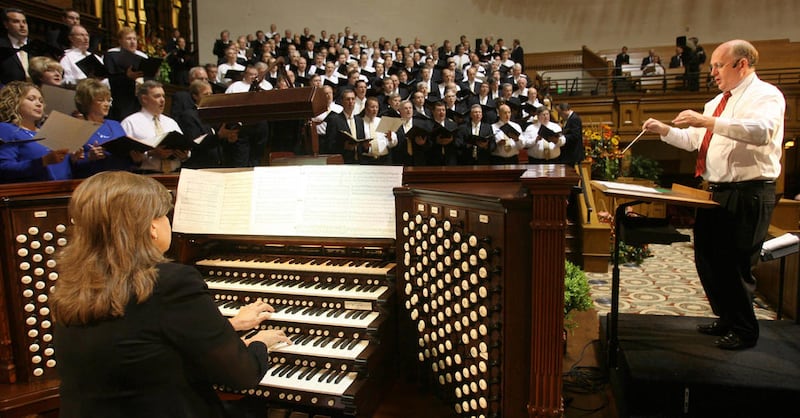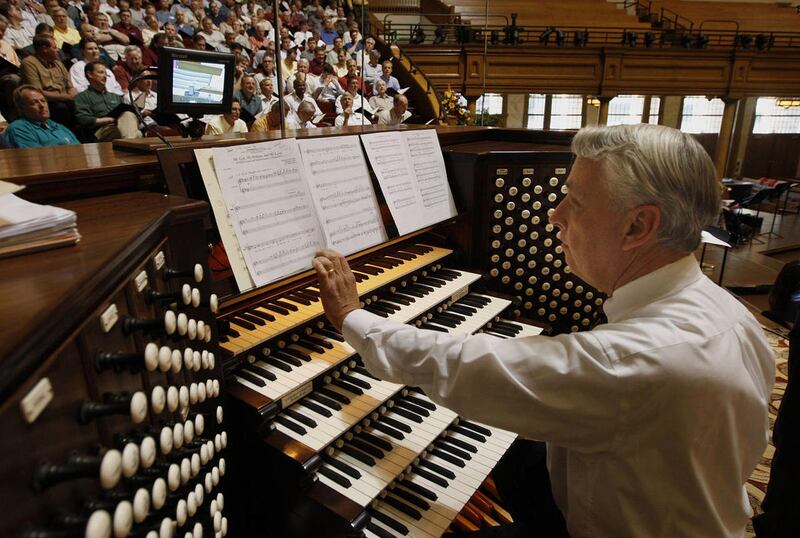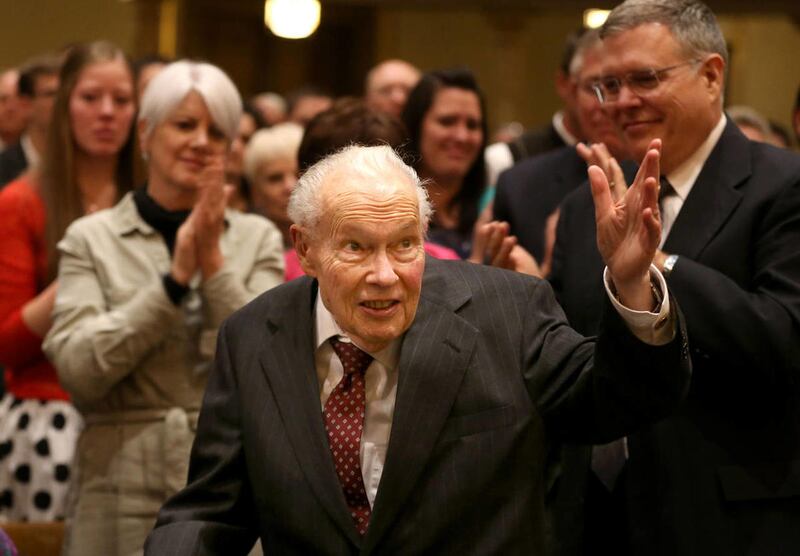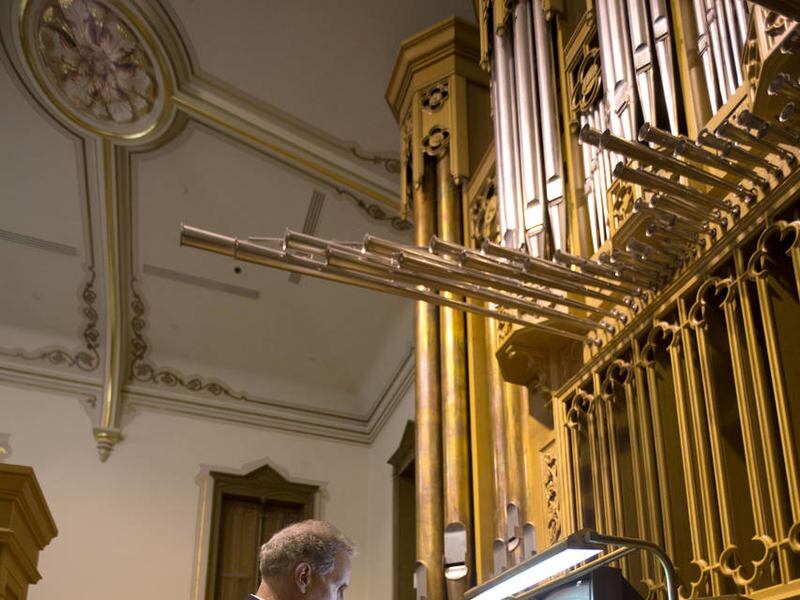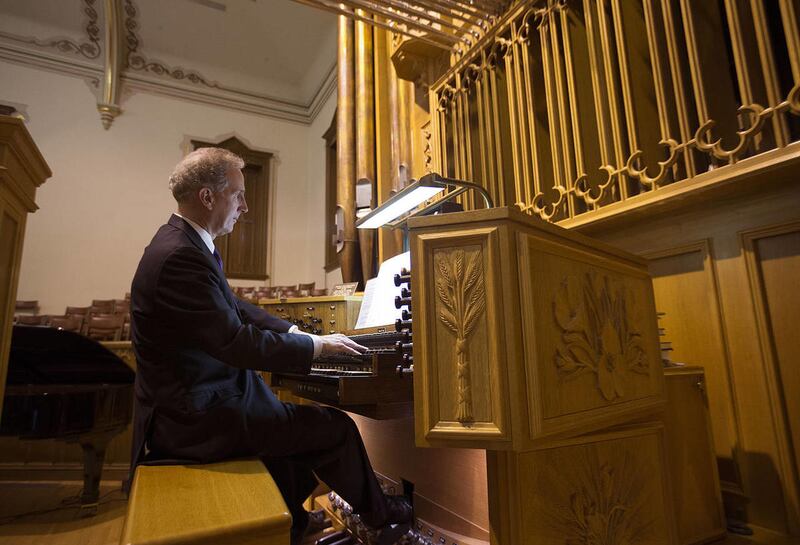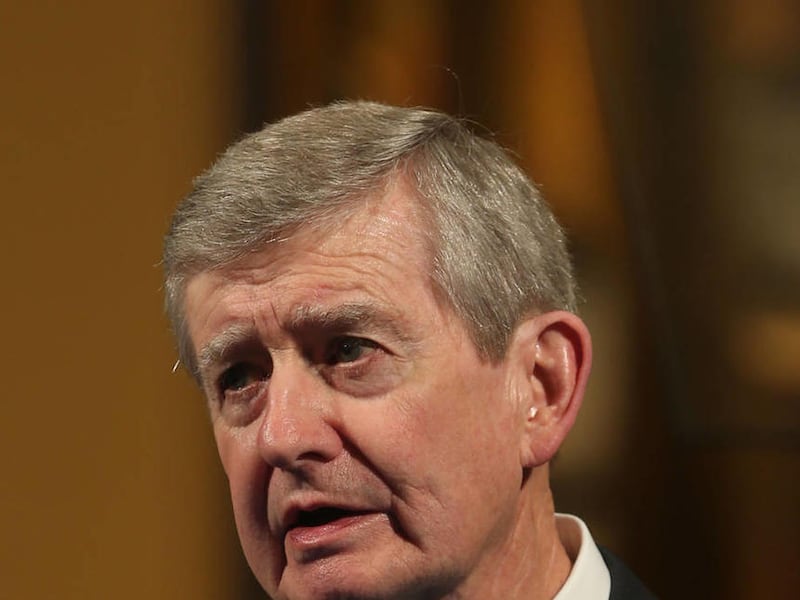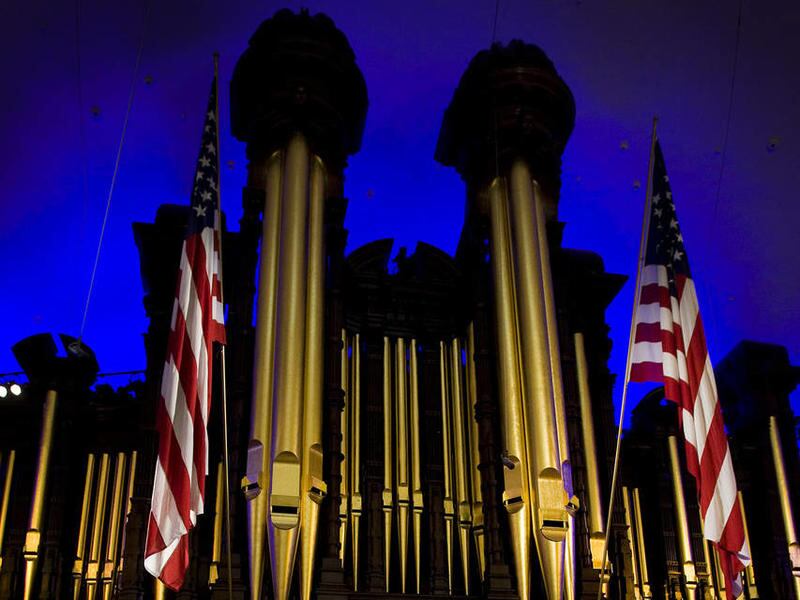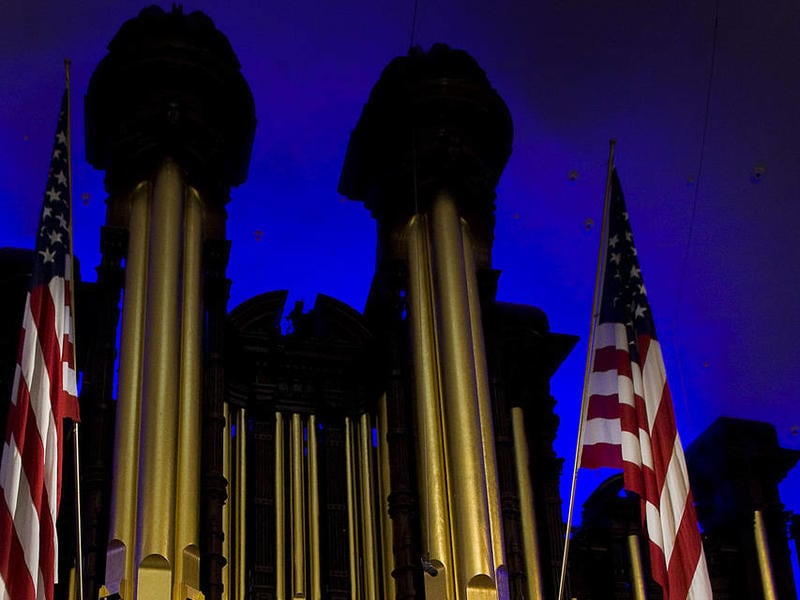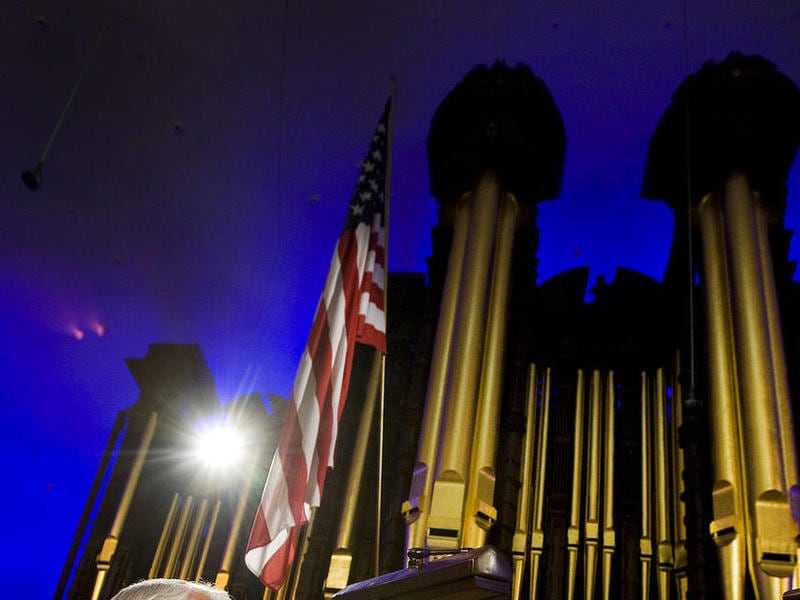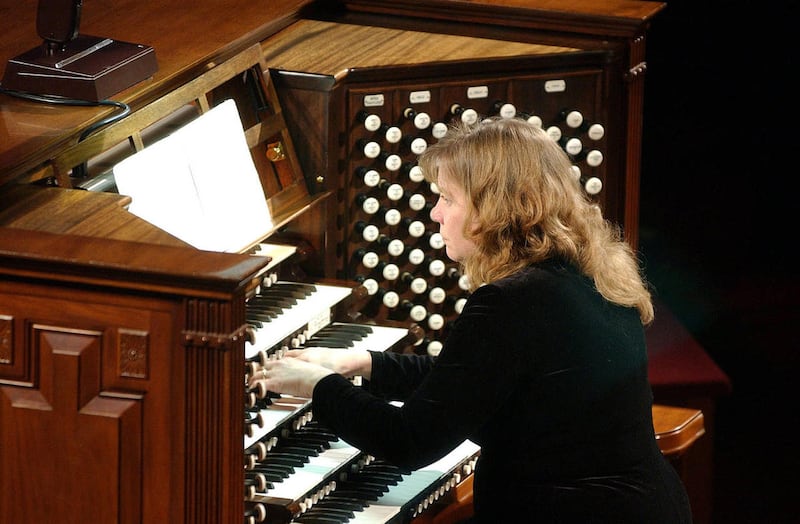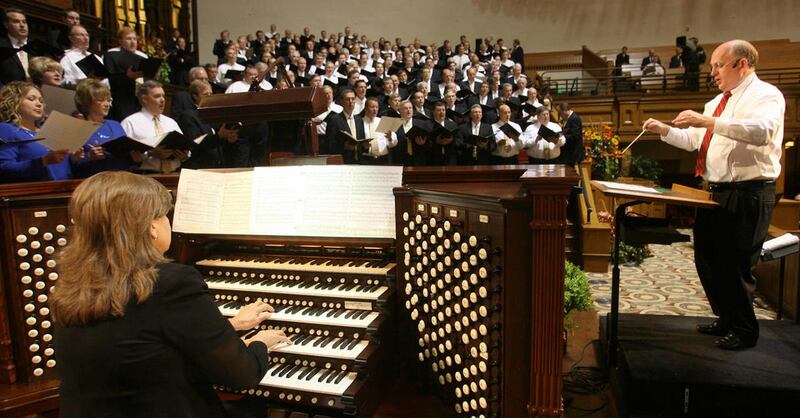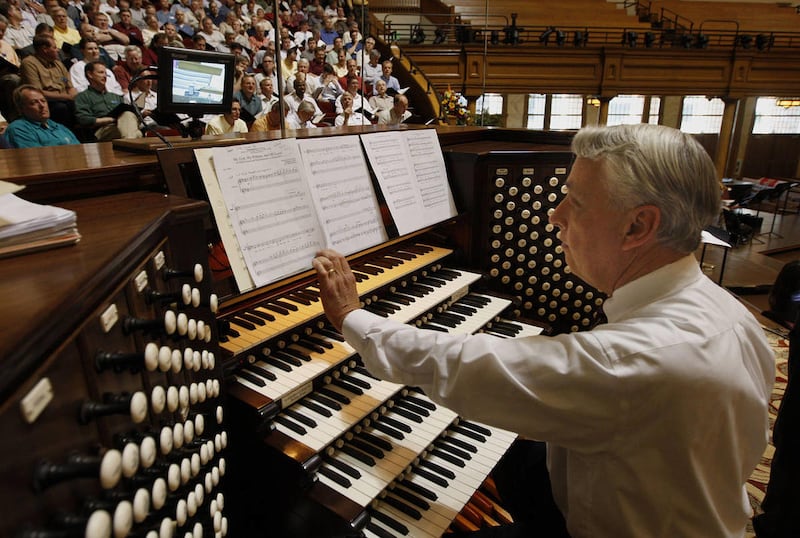SALT LAKE CITY — Playing the 11,623-pipe organ that accompanies the Mormon Tabernacle Choir — often before a live audience of thousands of people — is an experience that organists describe as "exultant," "incredible," "celestial," "sublime" and "awesome."
Thirteen people have had the occupation of full-time organist. Currently, Richard Elliott, Clay Christiansen and Andrew Unsworth hold the position, with Bonnie Goodliffe and Linda Margetts as part-time professional organists.
It's a select group. And on May 9 in the Assembly Hall on Temple Square, a tribute concert was held to honor one of their own: Tabernacle organist emeritus Robert Cundick on the 50th anniversary of his appointment.
The gathering gave the organists an opporuntity to reflect on their shared experiences. Despite their rigorous schedules, the additional support required from their families and the at-times intimidating performances, accompanying the famous choir on the majestic organ strengthens their testimonies of the gospel of Jesus Christ.
Cundick described why the organ is referred to as "the king of instruments."
"A skilled player at a large organ such as the Tabernacle must use both hands, both feet, their ears and their eyes simultaneously,” Cundick said. “It is an extremely complex and amazing instrument. Music is a language of emotions so, without words, you’re expressing your feelings. My testimony grows every time I play hymns on the organ.”
---
Rigorous schedule
Between weekly radio and television broadcasts of "Music & The Spoken Word," daily 30-minute recitals in the Tabernacle and living day-to-day church and family lives, the five current organists stay busy.
“One of the joys of being a Tabernacle organist is that there is no typical day,” Christiansen said.
According to Christiansen, there is a continual stream of people from around the world who appear at the Tabernacle after the daily recitals, hoping to see the organ up close and visit with the organists.
“There is a lot more to this job than practicing the organ,” Elliot said. “In reality, there is a fair amount of talking to people, responding to inquiries, writing letters, making up schedules, planning and writing music. The greatest challenge is finding that happy medium. I just try to be as organized as possible.”
Family support
Christiansen said his family of 13 children and more than 50 grandchildren has played a role of “tremendous support and sacrifice,” and has in turn been blessed. Each organist has a family at home and believes that unit is a priority.
“When I’m not at Temple Square, I’m a dad,” Unsworth said. “I have five kids, so most of my days off are spent cleaning or fixing holes in the walls. Actually, I like doing stuff like that. There’s something therapeutic about it. One time at the end of a really long day, I calculated I had spent 12 hours on the organ bench. On average, I practice about six hours a day.”
Margetts, one of the part-time Tabernacle organists and an organ instructor at the University of Utah, is the mother of six children.
“I know that I was a better organist because I was a mother, which always deepens you," Margetts said. "You can appreciate life a little better when you see a little baby grow up.”
Intimidation
Goodliffe, one of the part-time organists, said it is “exhilarating” to play the organ, but only when she is well prepared.
“Playing the organ is a fabulous job, but it is not without significant stress and pressure,” Goodliffe said. “With that said, I consider myself extremely fortunate to have a chance to feel that stress and have that experience.”
Each of the organists agreed that playing the organ with the Mormon Tabernacle Choir still can be intimidating, despite their experience.
“When you are one of 360 people in the choir, you can stop singing if you have to and nobody is going to know the difference,” said John Longhurst, a long-time colleague of Cundick and another emeritus Tabernacle organist. “But when you are at the organ and the only means of accompaniment, there’s a certain prominence to your role that you simply can’t dismiss for a moment. You only hope that you have had sufficient training and preparation to be able to perform successfully.”
Unsworth said his nightmares are all about the things that could potentially go wrong in a broadcast.
“I always check and double check to make sure I have everything,” he said.
According to Longhurst, the organists have good reason to be nervous. After all, they have a lot to worry about.
“There are so many potential traps ... that it’s hard to avoid them all consistently, so we have all had mess-up moments,” Longhurst said.
The “mess-up moments” range from camera to air conditioning mishaps. Once, a cameraman accidentally got hooked on a loud stop while Elliott was playing a soft and reverent piece, causing a loud trumpet noise to erupt through the Tabernacle. Another time, Unsworth’s music blew completely off the organ when the air conditioning turned on.
Elliott said when professional musicians err, they recover from it in the music, either by repeating the mistake a second time so the audience thinks it was supposed to happen or by improvising out of it.
Strengthened testimony
The organists talked about how their experiences have strengthened their testimonies of the gospel and compelled them to rely more on the Lord.
“I can’t even say how many times I have said a silent prayer as I walked out to perform and after the recital somebody came up to me in tears and said, ‘That was my father or my mother’s favorite hymn who passed away last year. How did you know?’” Elliott said. “To me it’s a sign that Heavenly Father loves us and cares about his children.”
According to Christiansen, music serves as a “divine art” with special power to bring the peace of heaven into one’s heart.
“Everything that the choir does is infused with a spirit that communicates to people,” Longhurst said. “Seeing what that has done in the lives of those in the audience reassures me that the Holy Spirit is at work.”
Cundick said every effort made by the organists boils down to the fact they are representing the church. Margetts believes "music can be the best outreach for the church because it softens hearts, it helps people with their emotions and helps them clarify things they’re concerned about.”
“It has been fun to have a life where I can participate in my two loves: the love of music and the love of the gospel of Jesus Christ," Margetts said.
All of the organists agreed that sharing their talent of playing the organ is a way to glorify God and spread the gospel.
“We’re all trying to build the kingdom of God in our own unique way, so if through the work that I do here I accomplish my part, I would consider that a success,” Unsworth said.
More information about the daily Tabernacle organ recitals can be found at mormontabernaclechoir.org/events/organ-recitals.
Email: kschwab@deseretnews.com


